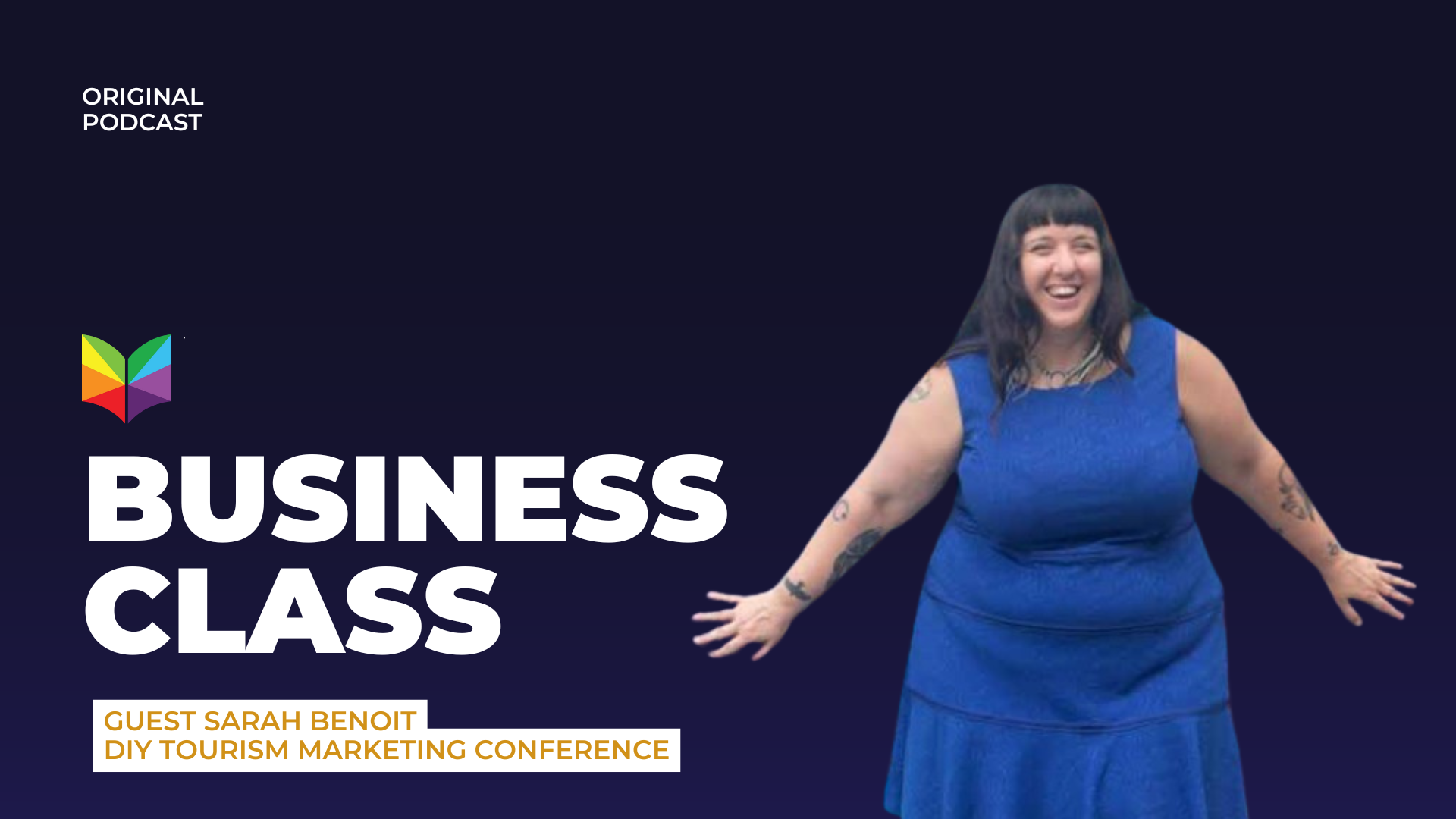
Unlocking the Power of Rural Tourism: A Conversation with Sarah Benoit
Unlocking the Power of Rural Tourism: A Conversation with Sarah Benoit
In the ever-evolving world of tourism marketing, few individuals have a story as compelling as Sarah Benoit’s. Co-founder and lead instructor of JB Media Institute in Asheville, North Carolina, Sarah has dedicated over two decades to shaping the future of travel and tourism. Her journey, which began in big cities, eventually led her to the hidden gems of rural America—places often overlooked by the masses but rich with untold stories. In a recent conversation, Sarah shared her insights on the importance of authenticity, empathy, and community in tourism marketing. Here are some key takeaways from our discussion.
A Passion for the Undiscovered
Sarah’s love for travel began at a young age, influenced by family trips to various destinations. However, it wasn’t until she started exploring lesser-known, rural areas that she found her true calling. “I really started to fall in love with my personal travel to places that were kind of unexpected,” she explains. These experiences not only deepened her passion for tourism but also inspired her to help rural communities position themselves as unique, authentic destinations.
When Sarah moved to Asheville, North Carolina—then a small, relatively unknown town—she witnessed firsthand how a community could transform into a thriving tourism economy. This experience fueled her desire to work with other rural areas, helping them share their stories with the world while maintaining their authenticity.
The Balancing Act: Authenticity and Growth
One of the biggest challenges in tourism marketing is balancing authenticity with the need for growth. Sarah emphasizes that this is an ongoing conversation for most destinations. “The real secret is, in my opinion, transparency and having community conversations,” she says. By involving the community in the early stages of tourism development, destinations can better understand diverse perspectives and create a sense of buy-in, even when everyone doesn’t agree.
Sarah also highlights the importance of educating locals about the broader impact of tourism. Beyond just the economic benefits, such as jobs and tax revenue, tourism contributes to the vibrancy and character of a community. She notes that “vibrancy is one of those intangibles that makes a tremendous difference,” especially in how a community is perceived by both residents and visitors.
Empathy in Marketing and Customer Service
In today’s digital world, Sarah believes that marketing and customer service are inseparable. “At this point in 2024, customer service and marketing are the same thing—they cannot be separated anymore,” she asserts. With the rise of social media and online reviews, every customer interaction has the potential to shape a destination’s reputation.
Empathy plays a crucial role in this dynamic. As a teacher and instructor, Sarah has learned that empathy isn’t just about being nice—it’s about creating space for others to engage, share their perspectives, and feel heard. She recounts early feedback from her teaching days, where students felt intimidated by her confidence. This feedback helped her embrace empathy more fully, ensuring that her enthusiasm for a topic didn’t overshadow others’ voices.
The DIY Tourism Marketing Conference
One of Sarah’s proudest achievements is the DIY Tourism Marketing Conference, an event designed to provide practical, hands-on training for tourism professionals. The conference was born out of a desire to offer more than just theoretical knowledge—attendees are encouraged to dive into the technical aspects of digital marketing, from using AI tools to exploring Google Ads settings.
“We really wanted to develop something that was about true skill-building when it came to digital marketing, particularly in the tourism and travel space,” Sarah explains. The conference has become a hub for sharing ideas, discussing challenges, and finding actionable solutions. It’s a place where destination marketers, CVBs, and tourism professionals can come together to learn and grow.
The Importance of Mentorship and Advocacy
Throughout her career, Sarah has been guided by numerous mentors, one of whom is Aisha Adams, a DEI expert and community advocate. Aisha has inspired Sarah to embrace her role as an advocate, not just in her professional work but also in her local community. This mentorship has empowered Sarah to push boundaries, ask tough questions, and advocate for meaningful change in the tourism industry.
Sarah’s advocacy work even led her to lobby Congress to fund national heritage areas, demonstrating her commitment to preserving the cultural and historical significance of rural communities.
Looking Ahead: The Future of Tourism and Education
As we wrapped up our conversation, I asked Sarah about her vision for the future of tourism and education. She shared her belief in the transformative power of travel and the importance of making everyone feel welcome in a community. “Everything is education, right? Everything is a learning experience,” she says. Sarah envisions a future where tourism not only sustains communities but makes them better than we found them—a future rooted in sustainability, empathy, and authentic connection.
In a world where travel and tourism continue to shape our lives and economies, Sarah Benoit’s insights remind us of the importance of authenticity, community, and empathy. As we look to the future, these principles will undoubtedly play a crucial role in creating vibrant, sustainable destinations that resonate with both locals and visitors alike.

Leave a comment